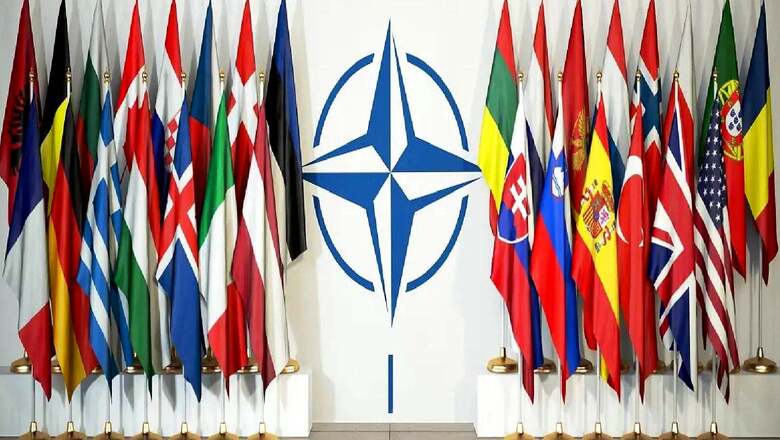
views
The US House of Representatives recently approved an amendment to the National Defence Authorisation Act that proposes deepening of India US defence ties. It was an amendment offered by Ro Khanna, a progressive Democrat from California, who has been working on trying to add India as the sixth country to the North Atlantic Treaty Organization (NATO).
In this light, questions arise regarding the relationship India and NATO enjoyed in the past, the possible areas of mutual interest and the points of departure, the role of Quad in all these developments, and the possible way forward for the relationship between the two.
In recent times, NATO has been quite vocal in considering and reaching out to India, but the Indian government has been hesitant. Apart from occasional references to the Atlantic alliance and speeches regarding the security situation in Afghanistan in the past, NATO has not found a place in Indian foreign policy discourse.
Historically, NATO’s alignment strategy stood in contrast to India’s non-alignment, further ignited by the presence of Portugal as a NATO founding member that further distanced India as it sought to regain the Portuguese enclaves in India as well as India’s close association with the Soviet Union further distanced India and NATO. In addition, India’s criticism of the NATO operations in KOSOVO added fuel to the fire.
However, with the advent of the twenty-first century, there have been interactions between NATO and India, the reasons being NATO’s willingness to deploy outside Europe and India expanding its reach as a global power. Further, the goals of stabilisation and promotion of democracy have emerged as common points of concern.
What needs to be understood is the fact that NATO’s ‘out of-area’ operations have taken it eastwards from the Mediterranean, while India’s ‘extended neighbourhood’ policy has brought it westwards from the Indian subcontinent. Under India’s Extended Neighbourhood policy, the geographical region stretches from the Suez Canal to West Asia, the Gulf, Central Asia, and the Indian Ocean Region. Whereas the extent of NATO operations has gone beyond its geographical North Atlantic and European membership, based on the idea of a ‘Global NATO’, that was first raised in 2006 by Ivo Daalder, the US Permanent Representative on the Council of the North Atlantic Treaty Organization from May 2009 to July 2013.
In the larger context, the formation of the Quad including India and the US has also seemed to play a role in these developments. There have been arguments calling the Quad an Asian NATO, but External Affairs Minister S Jaishankar has recently dismissed the narrative. He said that there are certain interested parties that are advancing such analogies. He pointed out that the international community must not slip into that narrative. He further clarified that Quad was formed to address more diverse and dispersed issues of the modern world compared to NATO.
The objective of Quad is not only limited to security and military issues in Asia. Geographically, these four nations are located at four corners of the Indo-Pacific. As a result, it is highly misleading to call it Asian NATO. Probably it is wrong to call the “China Pirith” group as it was formed long before the India-China border dispute of 2020. The External Affairs Minister said that the group focused on making the world a better place if they cooperated and four nations were working in that direction. In contrast, China has been complaining since the beginning of the group that it represents an attempt to formulate an Asian NATO against China and similar-thinking countries.
The need of the hour for NATO and India is to meaningfully discuss areas of common interest, including intelligence, planning-strategy, exercising, and formal linkage. There appears no inherent reason against intelligence sharing between NATO and India as it already does exist between the United States and India, especially since 9/11. With regard to planning and strategy, there exist overlapping geographical regions of Central Asia/Middle East and the Indian Ocean,
Going forward, formal institutionalised linkage between NATO and India remains unlikely as India, being the largest democracy, feels hesitant to be just another formal partner country to the Atlantic alliance even though NATO does have partnership agreements with other countries such as Pakistan. Both India and NATO can at least cooperate on matters of common concern as highlighted above without binding themselves through membership arrangements
Abhinav Mehrotra is Assistant Professor, OP Jindal Global University; Biswanath Gupta is Associate Professor, OP Jindal Global University. Views expressed are personal.
Read all the Latest Opinion News and Breaking News here




















Comments
0 comment